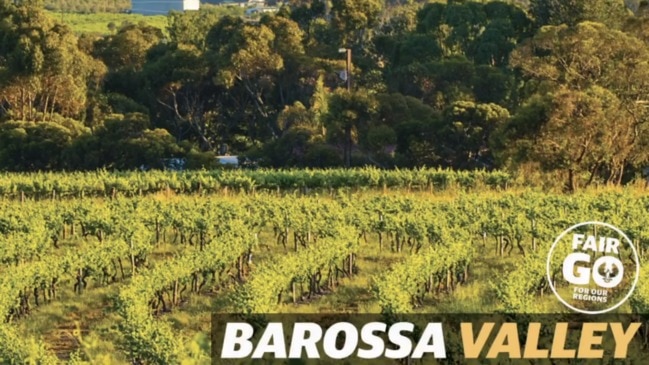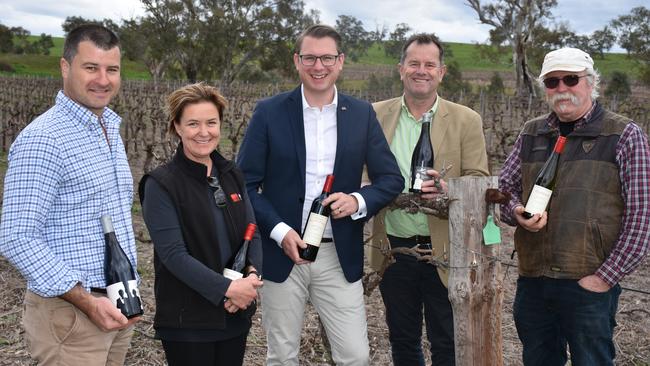Bolivar water could help ensure water security in the Barossa
Tough seasons have led to challenges in supplying consistent wine volumes from the Barossa and Eden Valleys, but that could be about to change.

SA Business
Don't miss out on the headlines from SA Business. Followed categories will be added to My News.
- Lower tonnages expected for SA vintage
- Prizes, discounts, freebies: Check out the latest subscriber rewards
A State Government proposal to shore up water supply to the Barossa and Eden Valleys could prove a game-changer for the region’s agricultural production.
Under the plan, reclaimed water from the Bolivar Wastewater Treatment would be delivered to the region via existing and new infrastructure. The State Government has committed $800,000 for the expansion of irrigation infrastructure, with the process led by PIRSA.
Barossa Grape & Wine Association chief executive James March said there had been significantly lower winter and spring rainfall than the long-term average across the majority of the region’s past 20 vintages. This had dramatically restricted yield potential, particularly for shiraz grapes.
“Currently Barossa delivers 25 per cent of the value of the South Australian wine grape crush, even though we’re only 9 per cent of the volume,” he said. “As well as reducing Barossa’s primary reliance on the River Murray, supplementing winter and spring rainfall with fit-for-purpose reclaimed water from the Bolivar Wastewater Treatment Plant will enable the region’s wine grape growers to deliver a more consistent, high quality yield from year-to-year in a sustainable manner.”

Mr March said consistent yields were important as they would enable a consistent supply of wine to Barossa’s global markets, particularly in Asia and North America.
By delivering additional water to the Barossa and Eden Valleys, initial estimates show a potential $292 million boost to the state’s economy and generation of 1000 jobs.
Primary Industries Minister Tim Whetstone said this was a breakthrough opportunity to deliver new water infrastructure to the Barossa.
“A key constraint to agricultural productivity and growth is the lack of secure and climate independent water, and new water infrastructure will support primary industries in the Barossa,” he said.
MORE NEWS
Man jailed for huge abalone haul
Billion dollar win despite drought
Member for Schubert Stephan Knoll said the community had been calling for a plan for long-term water security.
Providing recycled water to the Barossa was previously flagged under the National Water Infrastructure Development Fund proposal, which successfully secured funding to build the Northern Adelaide Irrigation Scheme.
